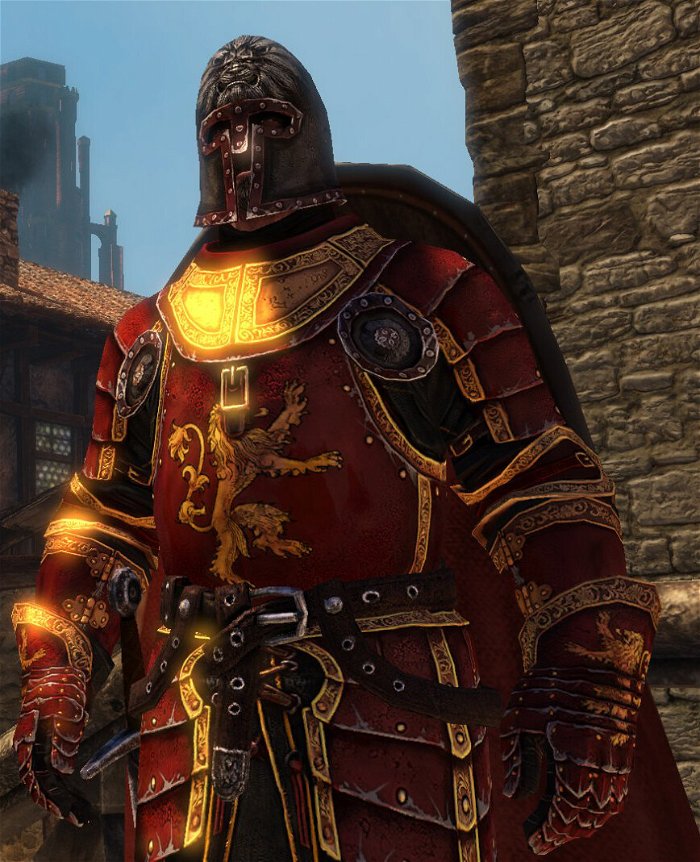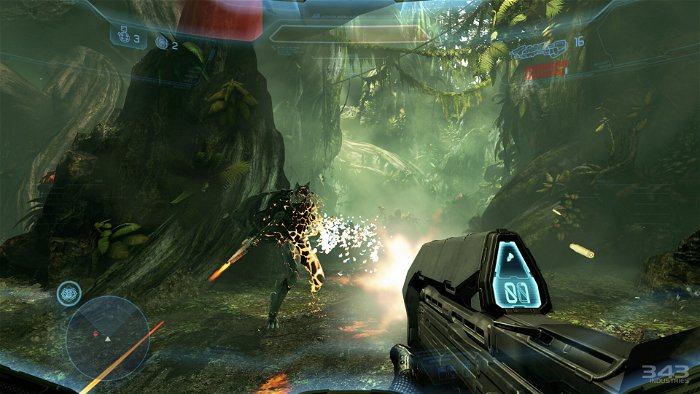Two of the biggest videogames of the fall season are Ubisoft Montreal’s Assassin’s Creed III and 343 Industries’ Halo 4.
Both of these titles are the equivalent of the film industry’s summer blockbusters — extremely well financed and generously marketed — even though they otherwise have very little in common.
I find that many of my favourite titles are ones that I can only recommend to a friend alongside a laundry list of caveats.
Both Assassin’s Creed III and Halo 4 have sold well and garnered critical acclaim in the short period since their releases, but, aside from the obvious differences in their genres and storylines (AC3 is a third-person open-world title set during the American Revolution while Halo 4 is a first-person shooter that takes place in a far flung sci-fi future) they also have extremely different design philosophies. Ubisoft Montreal developed AC3 to have a massive world, full of diverse gameplay systems featuring wildlife hunting, naval combat, base expansion, piles of optional side quests and innovative multiplayer component. All of these mechanics and modes are interesting in their own right, but almost none of them feel truly complete or thoroughly tested. There is a tremendous amount of variety present in the game, but aside from the main campaign path, AC3 is riddled with graphical glitches and a sense of many features being approved before they had been fully thought through.
Assassin’s Creed III is an extremely ambitious videogame that does a lot of things well without any one of its enormous number of elements feeling like they’ve been properly refined. Contrast this approach to 343’s creation of a fairly derivative shooter sequel that has impeccable visual and sound design, snappy gunplay and an obsessively detailed multiplayer mode and the difference is pretty clear: one blockbuster title is ambitious and flawed while the other is safer and extremely polished.
Which is better?
I like flawed games. I don’t want every game to be flawed, of course, but I find that many of my favourite titles are ones that I can only recommend to a friend alongside a laundry list of caveats.
 Cyanide Studio’s Game of Thrones RPG is a great example of a videogame that I found just as interesting as it was aggravating. While it’s a fantastic adaptation of George R.R. Martin’s novels and HBO’s mini-series — complete with a well-crafted, original plot containing only a few instances of unnecessary fan service — the game is repetitive, has a poorly considered combat system and a number of spectacularly annoying stealth sequences. Despite all of this, it’s difficult to condemn Cyanide for the ambition they demonstrated with such an incredibly trendy license. It’s easy to imagine another developer creating a rote hack and slash game featuring beloved characters from the show, wrapping the whole thing up with a lazy retelling of the first season and calling it a day. Something like that would be far easier to play test and lavish with audiovisual detail.
Cyanide Studio’s Game of Thrones RPG is a great example of a videogame that I found just as interesting as it was aggravating. While it’s a fantastic adaptation of George R.R. Martin’s novels and HBO’s mini-series — complete with a well-crafted, original plot containing only a few instances of unnecessary fan service — the game is repetitive, has a poorly considered combat system and a number of spectacularly annoying stealth sequences. Despite all of this, it’s difficult to condemn Cyanide for the ambition they demonstrated with such an incredibly trendy license. It’s easy to imagine another developer creating a rote hack and slash game featuring beloved characters from the show, wrapping the whole thing up with a lazy retelling of the first season and calling it a day. Something like that would be far easier to play test and lavish with audiovisual detail.
It would also, most likely, be a lot less memorable than the unique, inconsistent Game of Thrones title that Cyanide did release.
Ambitious games, even when they’re flawed, are often a whole lot more interesting than more highly refined, but less risky titles. Some of my favourite games come from the Uncharted series — titles with outstanding production values and an incredible level of attention to detail —while others include messy releases like the bug-ridden Alpha Protocol or S.T.A.L.K.E.R: Shadow of Chernobyl. It’s hard to call one type of game better than the other (unless you’re writing a review focused on technical merit). To me, the buggy, imperfect mess of systems that is Assassin’s Creed III is as interesting and worthy of attention as the heavily polished, razor sharp presentation and mechanics of Halo 4.

I’d hate to imagine one type of game existing without the other being around as well. The taut shoot-outs of a Modern Warfare have to be balanced with the broken quest systems of a Fallout: New Vegas. Ambitious titles push other developers forward, demonstrating how important it is to try new things and reach past the point where more sensible creators would identify their limits. Polished games show just how enjoyable a gameplay experience can be when these limits are respected and worked within.
The medium needs this kind of yin and yang balance for developers to work at their best and, luckily (at least as far as recent years have shown), it will probably always have it. While it’s fine to complain that Assassin’s Creed III doesn’t accomplish everything it set out to do or that Halo 4 brings little invention to the table, the fact that both type of games exist — and are able to compete with one another during a crowded autumn release schedule — is a good thing.




